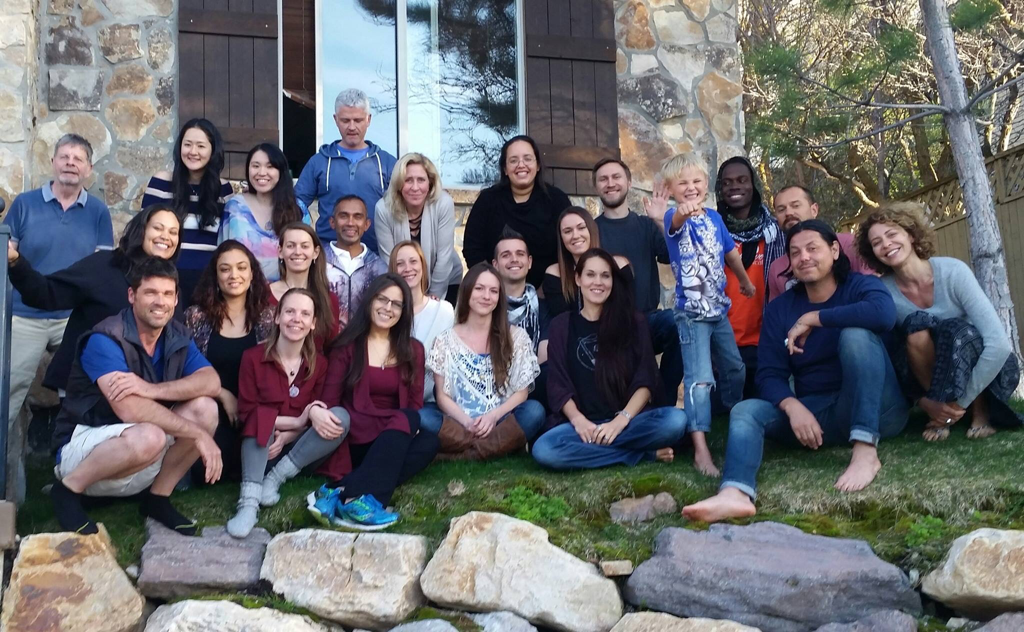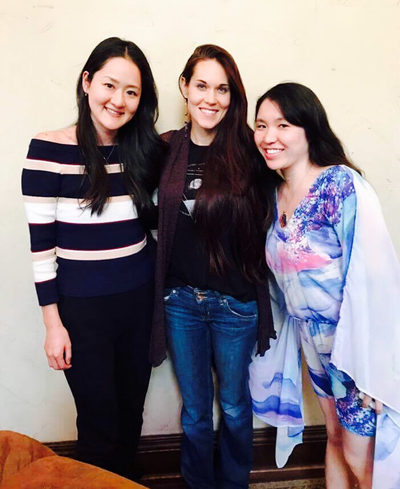Akiho Tanaka, PHD, LLC
What is the Completion Process?
The Completion Process (CP) is a trauma integration process developed by Teal Swan. It is an emotional re-birth experience in which I serve as an emotional midwife - and like an actual birth, it is a highly individual and organic process - thus, it cannot be rushed or hurried. This powerful healing process allows you to retrieve lost aspects of yourself that fractured in the moment of trauma, in order to become whole again.
What are benefits of CP?
Most people experience immense emotional relief from using CP. You may be able to access good-feeling emotions (e.g., peace, relaxation, happiness) that you never felt before - this is because when you suppress your ability to feel negative emotions, you also suppress your ability to feel positive emotions, so this process will open you up to access a greater range of emotions and heightened sensitivity. You may become less afraid to feel your feelings because although this process requires you to feel super uncomfortable feelings, you come out of it feeling much better than before. Also, you may no longer be triggered by previous triggers that you used for CP, or experience decreased reactivity to them. Moreover, you may find that you no longer feel inclined to engage in unhealthy coping behaviors (e.g., substance use) because we have addressed the actual root of the problem. Overall, you will likely experience greater self-awareness and wholeness, as you access aspects of yourself that have been suppressed or buried in the subconscious mind. Because this process will allow you to reconnect with who you really are, it will help you achieve what you truly want in life (e.g., relationships, human connection, career, etc), if you are willing to let go of what is no longer serving you.
What can I expect for a CP session?
First, a guided meditation will be used to create your "Safe Haven" in your mind (this only needs to be done once). Then, you will be asked to talk about a trigger which will allow you to feel the intense physical and emotional experiences associated with that trigger, and ultimately bring you back to the original memory. Once the memory has been accessed, resolution will be provided through active visualization. Although you will likely feel relief at the end of the session, you may also feel somewhat emotionally raw as this is an emotionally intense process and your body is acclimating to a new state of wholeness. Also, this process may uncover emotional needs from childhood that were not met. After the process, we'll explore your reaction to the process and we'll talk about ways to get your unmet emotional needs met. It is important that you are very gentle with yourself after a CP session, and not schedule any vigorous or stressful activities immediately afterwards.
What is a trigger?
A trigger is an emotional flashback that is taken out of context. As such, when you are triggered, it is unlikely that you will realize in that moment that you are actually reacting to a memory rather than what is happening in the present moment. Because it is taken out of context, you may feel like you are going crazy because you are having a fight, flight, or freeze reaction to something that reminds you of the original threat but not the actual threat itself (e.g., freezing in response to an actual bear that is chasing you vs. freezing in response to something that reminds you of that bear), or other people may perceive you as over-reacting or blowing things out of proportion because they too don't realize you are responding to a traumatic memory. Essentially, it feels like your "hot buttons" are pressed.
Who will benefit from CP?
Anyone who experiences triggers, are willing to feel their emotions, and are ready to change aspects of their lives that are no longer serving them.
If you are not used to connecting with your emotions, this process may be challenging because it requires you to be unconditionally present with yourself. Similarly, taking psychotropic medication (and regular alcohol/substance use) may interfere with this process as they may decrease your ability to fully feel your feelings. In such cases, we may focus on learning to reconnect with feelings first in individual therapy before using CP.
What kinds of traumas can be addressed with CP?
CP is designed to address any kind of childhood trauma. Not only does it address more severe traumas (e.g., physical abuse, sexual abuse, emotional abuse/neglect, accidents, natural disasters, etc), but also seemingly "normal" and benign events that have been emotionally painful and unresolved (e.g., toddler feeling powerless to reach his sippy cup, feeling jealous about having a new sibling, getting lost in a grocery store as a small child, etc), as well as prenatal, perinatal, and birth trauma (e.g., c-sections, premature births, adoptions, etc). In this sense, trauma is defined as any unresolved distressing experience.
How long does it take to do CP and can we stop in the middle of it if we run out of time?
Much like a birth, we won't know how long CP will last because each person and each experience is different. It is possible that it could be as short as 45 minutes, or as long as 3 hours or more. Just like you can't stop a birth and put the baby back in during the middle of a birth, it is very important that once CP has begun, resolution is achieved. Please make sure to schedule when you have ample time and are not rushed.
Most people experience immense emotional relief from using CP. You may be able to access good-feeling emotions (e.g., peace, relaxation, happiness) that you never felt before - this is because when you suppress your ability to feel negative emotions, you also suppress your ability to feel positive emotions, so this process will open you up to access a greater range of emotions and heightened sensitivity. You may become less afraid to feel your feelings because although this process requires you to feel super uncomfortable feelings, you come out of it feeling much better than before. Also, you may no longer be triggered by previous triggers that you used for CP, or experience decreased reactivity to them. Moreover, you may find that you no longer feel inclined to engage in unhealthy coping behaviors (e.g., substance use) because we have addressed the actual root of the problem. Overall, you will likely experience greater self-awareness and wholeness, as you access aspects of yourself that have been suppressed or buried in the subconscious mind. Because this process will allow you to reconnect with who you really are, it will help you achieve what you truly want in life (e.g., relationships, human connection, career, etc), if you are willing to let go of what is no longer serving you.
What can I expect for a CP session?
First, a guided meditation will be used to create your "Safe Haven" in your mind (this only needs to be done once). Then, you will be asked to talk about a trigger which will allow you to feel the intense physical and emotional experiences associated with that trigger, and ultimately bring you back to the original memory. Once the memory has been accessed, resolution will be provided through active visualization. Although you will likely feel relief at the end of the session, you may also feel somewhat emotionally raw as this is an emotionally intense process and your body is acclimating to a new state of wholeness. Also, this process may uncover emotional needs from childhood that were not met. After the process, we'll explore your reaction to the process and we'll talk about ways to get your unmet emotional needs met. It is important that you are very gentle with yourself after a CP session, and not schedule any vigorous or stressful activities immediately afterwards.
What is a trigger?
A trigger is an emotional flashback that is taken out of context. As such, when you are triggered, it is unlikely that you will realize in that moment that you are actually reacting to a memory rather than what is happening in the present moment. Because it is taken out of context, you may feel like you are going crazy because you are having a fight, flight, or freeze reaction to something that reminds you of the original threat but not the actual threat itself (e.g., freezing in response to an actual bear that is chasing you vs. freezing in response to something that reminds you of that bear), or other people may perceive you as over-reacting or blowing things out of proportion because they too don't realize you are responding to a traumatic memory. Essentially, it feels like your "hot buttons" are pressed.
Who will benefit from CP?
Anyone who experiences triggers, are willing to feel their emotions, and are ready to change aspects of their lives that are no longer serving them.
If you are not used to connecting with your emotions, this process may be challenging because it requires you to be unconditionally present with yourself. Similarly, taking psychotropic medication (and regular alcohol/substance use) may interfere with this process as they may decrease your ability to fully feel your feelings. In such cases, we may focus on learning to reconnect with feelings first in individual therapy before using CP.
What kinds of traumas can be addressed with CP?
CP is designed to address any kind of childhood trauma. Not only does it address more severe traumas (e.g., physical abuse, sexual abuse, emotional abuse/neglect, accidents, natural disasters, etc), but also seemingly "normal" and benign events that have been emotionally painful and unresolved (e.g., toddler feeling powerless to reach his sippy cup, feeling jealous about having a new sibling, getting lost in a grocery store as a small child, etc), as well as prenatal, perinatal, and birth trauma (e.g., c-sections, premature births, adoptions, etc). In this sense, trauma is defined as any unresolved distressing experience.
How long does it take to do CP and can we stop in the middle of it if we run out of time?
Much like a birth, we won't know how long CP will last because each person and each experience is different. It is possible that it could be as short as 45 minutes, or as long as 3 hours or more. Just like you can't stop a birth and put the baby back in during the middle of a birth, it is very important that once CP has begun, resolution is achieved. Please make sure to schedule when you have ample time and are not rushed.
Ready to schedule a CP session? Congratulations on taking this huge step towards empowering and healing yourself! You deserve it :)



